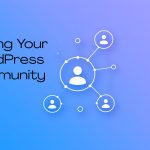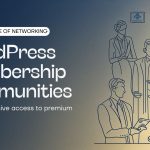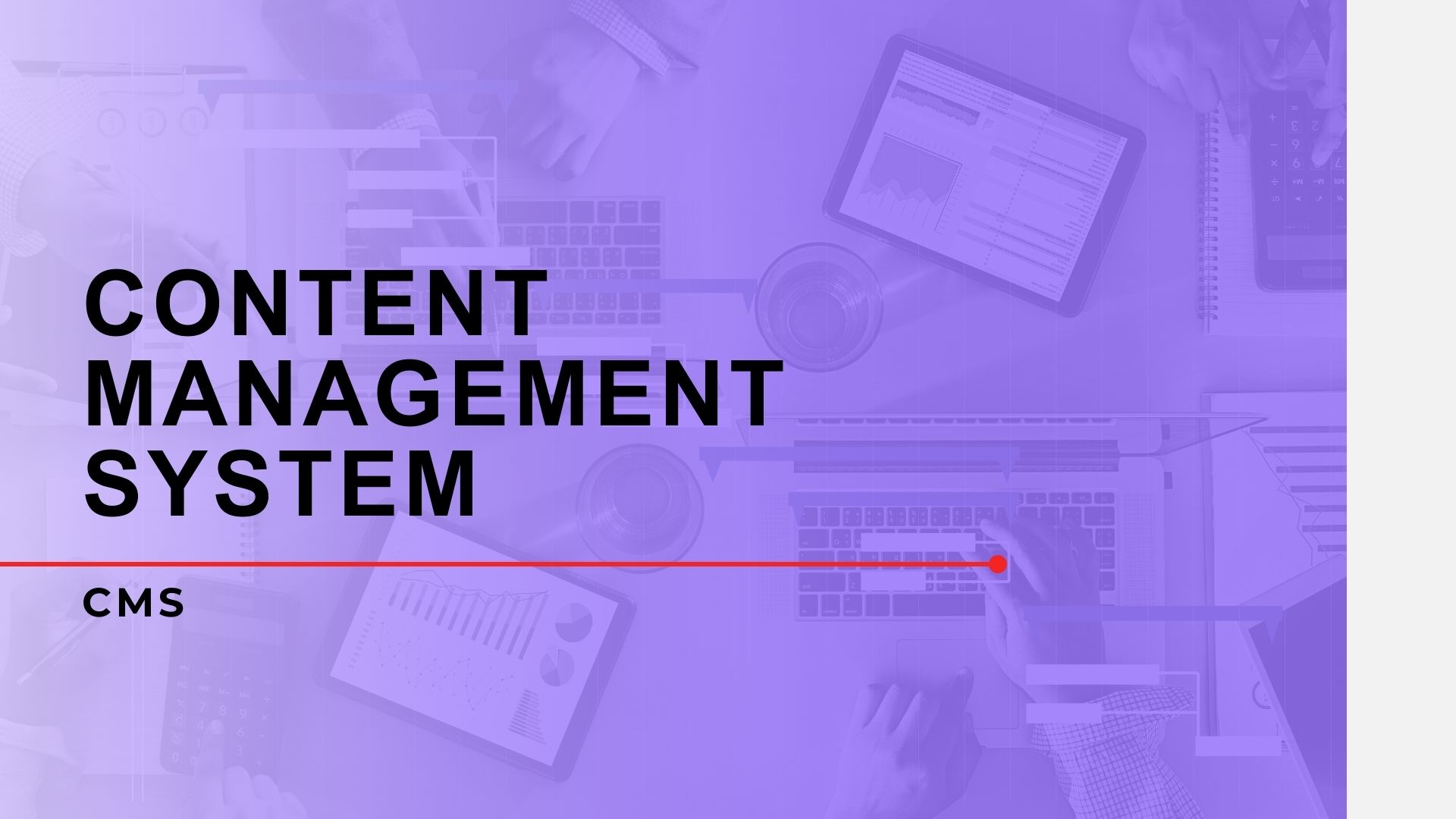The digital education landscape has transformed dramatically, with WordPress learning communities emerging as the gold standard for creating engaging, interactive educational platforms. Unlike traditional learning management systems that focus solely on content delivery, WordPress eLearning communities combine powerful LMS functionality with social networking features, creating immersive learning environments where students and educators thrive together.
Whether you’re building an online school, coaching community, or professional training hub, WordPress learning communities offer unmatched flexibility and engagement potential. By combining leading LMS plugins like LearnDash, LifterLMS, Tutor LMS, and Sensei with community features powered by BuddyPress, you can create comprehensive educational ecosystems that rival expensive enterprise platforms while maintaining complete control over your content and student data.
This comprehensive guide explores everything you need to know about building successful WordPress learning communities, from choosing the right LMS plugins to implementing advanced community features that keep learners engaged and motivated throughout their educational journey.
What Are WordPress Learning Communities?
WordPress learning communities represent the evolution of online education, combining traditional learning management system capabilities with social networking features that foster collaboration, peer learning, and long-term engagement. These platforms transform isolated learning experiences into vibrant educational ecosystems where students connect, collaborate, and learn from each other while progressing through structured course content.
Unlike standalone LMS platforms that treat education as a solitary activity, WordPress learning communities recognize that learning is inherently social. Students learn better when they can discuss concepts with peers, ask questions in supportive environments, share their progress and achievements, and receive feedback from both instructors and fellow learners. This social dimension significantly improves course completion rates, student satisfaction, and learning outcomes.
The power of WordPress learning communities lies in their flexibility and customization potential. Educators can create unique learning experiences tailored to their specific audiences, whether they’re running corporate training programs, coaching communities, professional certification courses, or creative skill-building workshops. This adaptability ensures that learning communities can evolve with changing educational needs and market demands.
Modern WordPress learning communities integrate seamlessly with business tools, payment systems, marketing platforms, and analytics solutions, creating comprehensive educational businesses that can scale from individual courses to large educational institutions. The platform independence of WordPress ensures that educators maintain complete ownership of their content, student data, and business relationships.
Essential Features of WordPress Learning Communities
Course Discussions and Interactive Forums
Course discussions form the backbone of effective WordPress learning communities, providing dedicated spaces where students can engage with course material, ask questions, and collaborate on assignments. Unlike generic forum systems, course-specific discussions maintain focus on learning objectives while encouraging peer-to-peer knowledge sharing that reinforces key concepts.
Advanced discussion features include threaded conversations that organize complex topics logically, instructor moderation tools that ensure high-quality discussions, and integration with course progress tracking that connects discussions to specific lessons or modules. Students can bookmark important discussions, receive notifications about relevant conversations, and search previous discussions to find answers to common questions.
Interactive forums extend beyond simple Q&A to include project showcases, peer review sessions, case study discussions, and collaborative problem-solving activities. These forums create learning laboratories where theoretical knowledge transforms into practical skills through active application and peer feedback.
Gamification elements within discussion forums, such as reputation systems, helpful answer recognition, and contribution badges, encourage active participation while maintaining quality standards. Students who consistently provide valuable insights can earn recognition that enhances their learning experience and builds confidence in their growing expertise.
Learner Groups and Study Circles
Learner groups enable students to form smaller, focused communities within larger learning platforms, creating intimate environments for deeper collaboration and mutual support. These groups can be self-organized around shared interests, learning goals, or geographical locations, or instructor-facilitated for specific projects, assignments, or study sessions.
Study circles provide structured environments for collaborative learning, where small groups of students work together on specific topics, assignments, or skill development goals. These circles often include scheduled virtual meetings, shared workspaces, peer mentoring opportunities, and group accountability systems that improve learning outcomes through social support and collective motivation.
Advanced group features include file sharing capabilities for collaborative projects, private messaging systems for group coordination, event scheduling for study sessions or virtual meetups, and progress tracking that allows groups to monitor collective advancement toward learning goals. Integration with video conferencing tools enables seamless transitions from asynchronous discussions to real-time collaboration sessions.
Group management tools help instructors monitor group dynamics, provide targeted support to struggling groups, and facilitate cross-group knowledge sharing when appropriate. Analytics on group activity help identify successful collaboration patterns that can be replicated across other learning communities.
Progress Sharing and Achievement Recognition
Progress sharing transforms individual learning journeys into community celebrations, creating motivation through transparency and peer recognition. Students can share completion milestones, project achievements, skill assessments, and personal learning breakthroughs with their learning community, receiving encouragement and feedback that sustains long-term engagement.
Achievement systems go beyond simple completion certificates to include skill-based badges, learning pathway recognition, community contribution awards, and peer-nominated excellence recognition. These systems acknowledge diverse types of learning success, from academic achievement to collaborative leadership and creative problem-solving.
Social progress features allow students to set public learning goals, share daily or weekly progress updates, and celebrate major milestones with their learning community. This transparency creates accountability that improves completion rates while building supportive relationships among learners with similar goals and challenges.
Portfolio integration enables students to showcase their best work, receive constructive feedback, and build professional portfolios that demonstrate their learning journey to potential employers or clients. These portfolios become valuable career development tools that extend the value of learning community participation beyond course completion.
Teacher-Student Q&A and Mentorship
Direct communication channels between instructors and students create personalized learning support that addresses individual needs while benefiting the broader learning community. Advanced Q&A systems organize questions by topic, difficulty level, and urgency, helping instructors provide efficient, targeted support to students at different stages of their learning journey.
Mentorship features connect students with experienced learners, industry professionals, or specialized instructors for ongoing guidance and career development support. These relationships can be formalized through mentorship programs or emerge organically through community interaction and shared interests.
Office hours functionality enables instructors to schedule regular availability for student questions, provide group tutoring sessions, and offer specialized support for complex topics. Integration with calendar systems and video conferencing tools makes these interactions seamless and accessible to students regardless of their geographical location.
Expert guest features allow communities to invite industry professionals, thought leaders, and specialized instructors for limited-time Q&A sessions, workshops, or masterclasses that enrich the learning experience with real-world expertise and current industry insights.
Leading WordPress LMS Plugins for Learning Communities
LearnDash: The Professional Standard
LearnDash has established itself as the premier WordPress LMS plugin, offering enterprise-level features that support sophisticated learning communities from small coaching groups to large educational institutions. The plugin’s robust architecture handles complex course structures, advanced assessment tools, and detailed progress tracking that meets the needs of serious educational businesses.
Course building capabilities in LearnDash include drag-and-drop lesson creation, multimedia content integration, interactive quizzes with multiple question types, and assignment systems that support various submission formats. The plugin’s focus system ensures students progress through material in optimal sequences while providing flexibility for different learning styles and pacing preferences.
Advanced features include course prerequisites that create logical learning pathways, drip-feed content delivery that maintains engagement over time, and comprehensive reporting systems that help instructors track student progress and identify areas where additional support might be needed. Integration with WooCommerce enables sophisticated pricing models, subscription options, and group enrollment management.
Reign Bundle for LearnDash provides the perfect combination of powerful LMS functionality with beautiful, professional design that creates engaging learning experiences. This comprehensive solution includes optimized course layouts, student dashboard designs, and community integration features that transform standard LearnDash installations into thriving learning communities.
LifterLMS: The All-in-One Solution
LifterLMS positions itself as a comprehensive learning management solution that includes built-in e-commerce, affiliate management, and advanced student engagement tools. The plugin’s integrated approach reduces the need for multiple third-party solutions while providing powerful features for building sustainable educational businesses.
Course creation tools in LifterLMS emphasize engagement through interactive elements, multimedia integration, and gamification features that keep students motivated throughout their learning journey. The plugin’s membership site capabilities enable complex access control, tiered content delivery, and community features that support diverse learning community models.
E-commerce integration includes native payment processing, subscription management, installment plans, and coupon systems that provide flexibility for various pricing strategies. Advanced features like affiliate programs and student referral systems help learning communities grow through word-of-mouth marketing and community advocacy.
Reign Bundle for LifterLMS combines LifterLMS’s powerful features with Reign’s professional design and community optimization, creating learning platforms that rival expensive proprietary solutions. This bundle ensures seamless integration between learning management and community features, providing cohesive user experiences that enhance both learning and community engagement.
Tutor LMS: The Flexible Alternative
Tutor LMS offers a modern approach to WordPress-based learning management, emphasizing ease of use, beautiful design, and powerful features that appeal to both technical and non-technical educators. The plugin’s intuitive interface makes course creation accessible while providing advanced features for sophisticated learning community needs.
Frontend course building capabilities allow instructors to create and manage courses without accessing WordPress admin areas, streamlining content creation and management processes. The plugin’s focus on user experience extends to student interfaces that are clean, intuitive, and optimized for engagement across all device types.
Advanced assessment tools include various question types, timed quizzes, certificate generation, and detailed analytics that help instructors understand student performance and optimize course content. Integration with popular WordPress plugins ensures compatibility with existing website functionality and business tools.
Reign Tutor LMS Addon enhances Tutor LMS installations with professional design elements, community integration features, and optimized layouts that create engaging learning environments. This addon ensures that Tutor LMS-powered learning communities maintain visual consistency and professional appearance throughout all platform features.
Sensei: The WooCommerce-Integrated Option
Sensei, developed by the WooCommerce team, provides deep integration with WordPress and WooCommerce that makes it ideal for learning communities that need sophisticated e-commerce functionality. The plugin’s native WordPress integration ensures smooth performance and compatibility with the broader WordPress ecosystem.
Course management in Sensei emphasizes simplicity and reliability, with straightforward course creation tools that don’t sacrifice functionality for ease of use. The plugin’s quiz and assessment features provide comprehensive student evaluation tools while maintaining user-friendly interfaces for both instructors and learners.
E-commerce integration with WooCommerce enables advanced pricing strategies, subscription management, and payment processing that supports complex business models. The plugin’s analytics and reporting features help learning community operators understand student behavior, course performance, and business metrics.
Reign Sensei Addon optimizes Sensei installations for community learning, providing enhanced layouts, social integration features, and professional design elements that transform standard Sensei sites into engaging learning communities that encourage collaboration and long-term student engagement.
WordPress Learning Community Use Cases
Online Schools and Academic Institutions
WordPress learning communities provide academic institutions with flexible, cost-effective platforms for delivering online education that rivals expensive proprietary systems. These platforms support complex academic structures including multiple courses, degree programs, student cohorts, and faculty management while maintaining the personal touch that characterizes effective education.
Academic WordPress communities typically include features like student portals with academic records, course catalogs with prerequisite tracking, faculty directories with expertise listings, and alumni networks that extend educational relationships beyond graduation. Integration with academic information systems enables seamless data management and reporting that meets institutional requirements.
Advanced academic features might include plagiarism detection, academic integrity monitoring, grade book integration, and compliance tools that ensure platforms meet educational standards and accreditation requirements. These capabilities make WordPress learning communities suitable for everything from small specialized schools to large university programs.
Student support systems within academic communities include tutoring services, academic advising, career counseling, and peer mentorship programs that address the holistic needs of online learners. These support systems significantly improve student success rates and satisfaction with online education experiences.
Coaching Communities and Personal Development
Professional coaches and personal development experts use WordPress learning communities to create intimate, supportive environments where clients can pursue personal growth goals while connecting with like-minded individuals on similar journeys. These communities combine structured learning content with peer support and professional guidance.
Coaching communities often feature goal-setting tools, progress tracking systems, accountability partnerships, and regular group coaching sessions that provide both structure and flexibility for personal development work. The community aspect provides encouragement and motivation that individual coaching relationships alone cannot match.
Advanced coaching features include personality assessments, skill evaluations, habit tracking tools, and personalized learning pathways that adapt to individual client needs and preferences. Integration with scheduling tools enables seamless booking of one-on-one coaching sessions and group workshops.
Success story sharing and achievement celebrations within coaching communities provide inspiration and proof of concept that motivates other community members. These testimonials become powerful marketing tools while reinforcing the value and effectiveness of the coaching programs.
Professional Training and Certification Programs
Corporate training and professional certification programs leverage WordPress learning communities to create comprehensive educational experiences that combine formal instruction with peer learning and practical application opportunities. These platforms support diverse learning styles while maintaining compliance with industry standards and certification requirements.
Professional training communities typically include industry-specific content libraries, expert instructor networks, peer networking opportunities, and continuing education tracking that helps professionals maintain required certifications and advance their careers. Integration with professional association databases enables seamless certification management and career tracking.
Corporate training features might include role-based learning pathways, team collaboration tools, project-based assessments, and management reporting systems that help organizations track employee development and skill advancement. These capabilities make WordPress learning communities attractive alternatives to expensive corporate training platforms.
Professional networking within training communities creates valuable career development opportunities, with alumni networks, industry connections, and job placement assistance that extend the value of certification programs beyond initial training completion.
Creative Skill Development and Artistic Communities
Artists, designers, writers, and other creative professionals use WordPress learning communities to share knowledge, develop skills, and build supportive networks that foster artistic growth and professional development. These communities emphasize portfolio development, creative feedback, and collaborative projects that enhance individual artistic development.
Creative learning communities often feature portfolio showcases, peer critique systems, creative challenges, and collaboration opportunities that help artists develop both technical skills and professional networks. The community aspect provides the feedback and encouragement that creative work requires for continued growth and development.
Advanced creative features include project galleries, technique tutorials, live demonstration streaming, and guest artist workshops that provide exposure to diverse artistic approaches and professional insights. Integration with social media platforms enables community members to share their work and build larger audiences.
Monetization opportunities within creative communities include artwork sales, commission matching, freelance job boards, and collaborative project opportunities that help artists build sustainable creative careers while contributing to community growth and vitality.
The Power of Professional WordPress Themes
BuddyX Pro: Universal LMS Integration
BuddyX Pro stands out as the most versatile WordPress learning community theme, offering native support for all major LMS plugins including LearnDash, LifterLMS, Tutor LMS, and Sensei. This universal compatibility makes BuddyX Pro the ideal choice for learning communities that want flexibility in their LMS selection or plan to integrate multiple learning systems.
The theme’s responsive design ensures optimal learning experiences across all devices, with mobile-first layouts that recognize the increasing importance of mobile learning. Touch-optimized interfaces, simplified navigation, and fast loading times create seamless experiences for students accessing courses on smartphones and tablets.
Advanced customization options in BuddyX Pro include unlimited color schemes, custom layout options, integration with popular page builders, and extensive widget areas that allow learning communities to create unique experiences tailored to their specific audiences and brand requirements.
Community integration features in BuddyX Pro seamlessly blend learning management with social networking functionality, creating cohesive platforms where students can access courses, participate in discussions, track progress, and connect with peers without navigating between different interface styles or interaction models.
Reign Theme Bundles: Specialized LMS Solutions
The Reign Bundle for LearnDash provides the most comprehensive integration between professional theme design and LearnDash functionality, creating learning platforms that rival expensive proprietary solutions. Every element is optimized for educational use, from course layouts and student dashboards to community integration and progress tracking displays.
Course presentation in the Reign LearnDash bundle emphasizes clarity and engagement, with clean lesson layouts, intuitive navigation, and multimedia integration that maintains student focus on learning objectives. Advanced features include custom course catalogs, instructor profiles, and student achievement displays that create professional, credible learning environments.
The Reign Bundle for LifterLMS combines LifterLMS’s powerful features with Reign’s professional design, creating learning communities that excel in both functionality and visual appeal. This integration ensures that all LifterLMS features, from course creation to e-commerce, maintain consistent design and user experience standards.
Both Reign bundles include extensive customization options, multiple demo layouts, and comprehensive documentation that enables learning community creators to launch professional platforms quickly while maintaining the flexibility to adapt and evolve as their communities grow and change.
Community Integration and Social Learning
BuddyPress Integration for Enhanced Engagement
BuddyPress integration transforms standard WordPress LMS installations into vibrant learning communities where students connect, collaborate, and learn from each other. This social dimension significantly improves course completion rates, student satisfaction, and long-term platform engagement.
Member profiles in learning communities include educational achievements, course progress, learning goals, and expertise areas that help students find study partners, mentors, and collaboration opportunities. These profiles become networking tools that extend the value of learning community participation beyond individual course completion.
Activity streams aggregate learning-related activities including course completions, discussion participation, achievement unlocks, and project shares, creating dynamic community feeds that celebrate learning progress and encourage continued engagement. Students can follow peers with similar interests and learning goals, creating supportive networks that enhance motivation.
Group functionality enables study groups, project teams, and interest-based communities within larger learning platforms. These groups can be course-specific, skill-focused, or social, providing multiple layers of community connection that address diverse student needs and preferences.
Discussion Forums and Knowledge Sharing
Advanced forum systems within WordPress learning communities organize discussions around courses, topics, skills, and interests, creating searchable knowledge bases that provide long-term value to community members. These forums become repositories of collective wisdom that new students can access to accelerate their learning progress.
Expert moderation tools help maintain high-quality discussions while encouraging active participation. Instructors and community managers can highlight valuable contributions, organize featured discussions, and ensure that forums remain focused on learning objectives while allowing natural community development.
Peer-to-peer learning facilitation includes question and answer systems, peer tutoring matching, study group formation, and collaborative project organization. These features recognize that students often learn best from peers who have recently mastered similar concepts and can explain them in relatable terms.
Knowledge sharing extends beyond formal discussions to include tip sharing, resource recommendations, tool reviews, and career advice that helps community members apply their learning in real-world contexts and advance their professional development goals.
Progress Tracking and Social Accountability
Social progress tracking enables students to share their learning journeys with community members, creating accountability and motivation that improves completion rates and learning outcomes. Students can set public goals, share daily progress updates, and celebrate achievements with supportive community members.
Achievement sharing transforms individual accomplishments into community celebrations, with badge displays, completion announcements, and milestone recognition that encourages continued progress while inspiring other community members to pursue their own learning goals.
Peer accountability systems enable students to form accountability partnerships, join progress tracking groups, and participate in learning challenges that add gamification elements to educational experiences. These social accountability features significantly improve student motivation and persistence through difficult learning periods.
Community leaderboards and progress competitions add friendly competition elements that motivate high-achieving students while ensuring that recognition systems acknowledge diverse types of learning success, from academic achievement to community contribution and peer support.
Technical Implementation and Best Practices
WordPress LMS Hosting Requirements
WordPress learning communities require robust hosting infrastructure capable of supporting multimedia content delivery, concurrent user sessions, and database-intensive operations like progress tracking and reporting. Shared hosting plans typically cannot handle the server resources needed for active learning communities with more than a few dozen students.
Virtual Private Servers (VPS) or dedicated hosting provide better performance for WordPress learning platforms, offering guaranteed resources and scalability options that accommodate growing student enrollments and increasing content libraries. Cloud hosting platforms enable automatic scaling during peak usage periods and provide global content delivery networks for optimal video streaming performance.
Managed WordPress hosting services specializing in high-performance WordPress sites often provide ideal solutions for learning communities. These hosts offer optimized server configurations, automatic updates, comprehensive backups, and expert support for WordPress-specific issues that can affect learning platform performance.
Content Delivery Networks (CDNs) become essential for learning communities serving students globally, ensuring fast video loading, responsive interactive elements, and optimal user experiences regardless of student geographical location. Video hosting integration with platforms like Vimeo or Wistia can offload bandwidth-intensive content while maintaining security and access control.
Security and Student Data Protection
WordPress learning communities require enhanced security measures to protect student personal information, course content, and payment data. Compliance with educational privacy regulations like FERPA, COPPA, and international data protection laws requires careful attention to data collection, storage, and processing practices.
SSL certificates and secure payment processing protect student financial information during enrollment and ongoing subscription management. Two-factor authentication and strong password requirements help prevent unauthorized access to student accounts and course content.
Regular security updates, malware scanning, and vulnerability monitoring protect learning platforms against common attack vectors. Learning communities often contain valuable content and student information that makes them attractive targets for cybercriminals, requiring proactive security measures.
Data backup systems ensure that course content, student progress, and community discussions remain protected against data loss from hardware failures, security breaches, or human error. Automated backup systems with offsite storage provide peace of mind for learning community operators and students alike.
Performance Optimization for Learning Platforms
Video content optimization becomes critical for learning communities that rely heavily on multimedia instruction. Video compression, adaptive streaming, and progressive loading ensure smooth playback across different internet connection speeds and device capabilities without compromising educational quality.
Database optimization handles the large amounts of data generated by learning communities through student progress tracking, discussion posts, assessment results, and activity logging. Regular database maintenance, query optimization, and efficient data structure design prevent performance degradation as communities grow.
Caching strategies designed for dynamic content help maintain fast loading times while preserving real-time features like progress tracking, discussion updates, and live chat functionality. Advanced caching systems can cache static content while ensuring that personalized student information remains current and accurate.
Mobile optimization ensures that learning communities provide excellent experiences across all device types. With increasing numbers of students accessing courses through mobile devices, responsive design, touch-optimized interfaces, and mobile-specific features directly impact student satisfaction and course completion rates.
Monetization Strategies for Learning Communities
Course Sales and Subscription Models
Direct course sales provide straightforward monetization for learning communities, with one-time payments for course access, bundled course packages, and tiered pricing strategies that accommodate different student budgets and learning goals. Advanced pricing includes early bird discounts, payment plans, and group enrollment options.
Subscription-based models create recurring revenue streams while providing students with ongoing value through new course releases, live events, community access, and continuous learning support. Monthly and annual subscription options give students flexibility while ensuring predictable revenue for learning community operators.
Membership tiers can combine course access with community features, offering basic memberships with limited course access and premium memberships including unlimited courses, priority support, exclusive events, and advanced community features. This tiered approach maximizes revenue while accommodating diverse student needs and budgets.
Corporate training packages enable learning communities to serve business clients with customized training programs, group enrollments, progress reporting, and branded learning experiences that command premium pricing while providing scalable revenue growth opportunities.
Certification and Credentialing Revenue
Professional certification programs provide high-value monetization opportunities for learning communities with established expertise and industry recognition. Certification fees, exam costs, and renewal requirements create ongoing revenue streams while providing students with valuable career advancement credentials.
Partnership with industry associations, professional organizations, and educational institutions can create accredited certification programs that command premium pricing and attract serious students willing to invest in career development. These partnerships also provide marketing credibility and reach.
Continuing education credits for professional requirements create natural subscription models where professionals need ongoing training to maintain licenses and certifications. Learning communities serving licensed professionals like healthcare workers, lawyers, or engineers can build sustainable businesses around continuing education requirements.
Badge and micro-credential systems enable monetization of smaller learning achievements while building toward larger certification goals. Students can purchase specific skill validations or complete badge collections that demonstrate expertise in particular areas.
Community Premium Features and Services
VIP community access provides premium monetization opportunities through exclusive discussion areas, direct instructor access, priority support, and special events that create additional value for dedicated community members willing to pay for enhanced experiences.
One-on-one coaching and mentoring services leverage community relationships to provide personalized education experiences that command premium pricing while utilizing the instructor expertise and community trust already established through group learning programs.
Live events, workshops, and masterclasses create additional revenue streams while strengthening community bonds and providing high-value experiences that justify premium pricing. Virtual and in-person events can serve different market segments while maximizing revenue opportunities.
Affiliate partnerships with relevant tools, books, and services enable learning communities to earn commissions while providing valuable resources to students. Carefully selected affiliate relationships maintain community trust while generating additional revenue streams.
SEO Benefits and Content Marketing
Educational Content for Organic Traffic
WordPress learning communities naturally generate extensive educational content through course materials, discussion forums, blog posts, and student-generated content that attracts organic search traffic. This content targets long-tail keywords related to specific skills, industries, and learning topics that traditional businesses cannot effectively address.
Course landing pages optimized for specific skills and topics can rank highly for educational search queries, attracting students actively seeking learning opportunities. Detailed course descriptions, instructor credentials, student testimonials, and curriculum overviews provide comprehensive information that search engines and prospective students value.
Blog content addressing industry trends, skill development tips, career advice, and educational insights establishes thought leadership while attracting organic traffic from students researching learning opportunities. Regular content publication maintains strong search engine visibility while demonstrating ongoing expertise and platform activity.
Student success stories and case studies provide authentic content that attracts prospective students while highlighting learning community effectiveness. These stories naturally incorporate relevant keywords while providing social proof that improves conversion rates from organic search traffic.
Community-Generated SEO Content
Discussion forums and Q&A sections create thousands of pages of user-generated content that can rank for specific questions and problems related to learning community topics. This content addresses real student questions and challenges, providing authentic, valuable information that search engines prioritize.
Student project showcases and portfolio galleries create visual content that can rank for creative searches while demonstrating learning community outcomes. These galleries provide social proof while attracting students interested in seeing real results from course participation.
Resource libraries and tool recommendations created by community members provide valuable content that attracts organic traffic while serving ongoing student needs. These resources become evergreen content that continues generating traffic and value long after initial creation.
Community event coverage, webinar recaps, and expert interview summaries provide fresh content that keeps learning community websites active and relevant in search engine rankings while providing ongoing value to community members who might have missed live events.
Local SEO for Regional Training Programs
Local learning communities serving specific geographic areas can leverage local SEO strategies to attract nearby students interested in in-person events, networking opportunities, and regional industry connections. Local business listings, regional keyword optimization, and community event promotion help establish local authority.
Partnership with local businesses, educational institutions, and professional organizations creates local link-building opportunities while establishing learning communities as valuable regional resources. These partnerships often lead to referral relationships that provide ongoing student enrollment growth.
Regional industry focus enables learning communities to target location-specific career opportunities, local job markets, and area-specific skill needs that larger national platforms cannot address effectively. This local relevance improves search rankings while providing unique value to regional students.
Community events and meetups provide local engagement opportunities while generating local media coverage and social media attention that improves local search visibility and establishes learning communities as active parts of their regional educational ecosystems.
Future Trends in WordPress Learning Communities
Artificial Intelligence and Personalized Learning
AI integration promises to revolutionize WordPress learning communities through personalized learning pathway recommendations, intelligent content curation, and adaptive assessment systems that adjust to individual student needs and learning styles. These technologies will make learning more efficient while maintaining the community aspects that drive engagement.
Chatbot integration for student support will provide 24/7 assistance for common questions while freeing instructors to focus on complex educational challenges that require human expertise. Advanced chatbots will integrate with learning management systems to provide personalized guidance and progress support.
Predictive analytics using AI will help identify students at risk of dropping out, recommend intervention strategies, and optimize course content based on learning outcome data. These insights will improve student success rates while helping learning community operators make data-driven improvements.
Automated content creation tools will assist instructors in developing course materials, generating quiz questions, and creating supplementary resources while maintaining quality and educational effectiveness. These tools will reduce content creation time while enabling more frequent course updates and improvements.
Virtual and Augmented Reality Integration
VR and AR technologies will transform hands-on learning experiences within WordPress communities, enabling immersive simulations, virtual laboratories, and experiential learning opportunities that were previously impossible in online environments. These technologies will particularly benefit technical training and creative education programs.
Virtual classroom experiences will provide more engaging alternatives to traditional video conferencing, with spatial audio, realistic avatars, and interactive environments that recreate the social dynamics of in-person learning while maintaining the accessibility of online education.
Augmented reality applications will enhance real-world learning experiences by overlaying digital information, instructions, and assessments onto physical environments. This technology will be particularly valuable for technical training, medical education, and field-based learning programs.
Mixed reality collaboration will enable students and instructors to work together on virtual projects, manipulate digital objects, and share immersive experiences that enhance understanding of complex concepts while building stronger community connections through shared virtual experiences.
Blockchain and Credential Verification
Blockchain technology will provide secure, verifiable credentials that students can own and share across platforms, employers, and educational institutions. WordPress learning communities will be able to issue tamper-proof certificates and badges that provide reliable verification of student achievements.
Decentralized learning records will give students complete ownership of their educational achievements while enabling seamless transfer between institutions and platforms. This portability will reduce barriers to continuing education while improving credential recognition across industries.
Smart contracts for education will automate many administrative processes including enrollment, payment processing, progress tracking, and credential issuance. These systems will reduce operational overhead while ensuring transparent, reliable execution of educational agreements.
Token-based incentive systems may emerge to reward student participation, peer tutoring, and community contribution through cryptocurrency or platform-specific tokens that can be exchanged for courses, services, or real-world value.
Conclusion: Building the Future of Online Education
WordPress learning communities represent the future of online education, combining powerful learning management capabilities with social networking features that create engaging, effective educational experiences. The flexibility and customization potential of WordPress, combined with specialized LMS plugins and professional themes like the Reign Bundle for LearnDash, Reign Bundle for LifterLMS, and BuddyX Pro, provide everything needed to create world-class learning platforms.
The Reign Tutor LMS Addon and Reign Sensei Addon ensure that learning communities can leverage any major LMS plugin while maintaining professional design and optimal user experiences. This flexibility allows educators to choose the best tools for their specific needs while ensuring cohesive, engaging platforms that encourage long-term student success.
Success in building WordPress learning communities requires careful attention to user experience, community development, and ongoing value creation for students. Communities that prioritize student success, foster genuine connections, and adapt to changing educational needs will build loyal, engaged learning ecosystems that provide lasting value to all participants.
The investment in creating WordPress learning communities pays dividends through improved student outcomes, stronger educational relationships, and complete control over platform evolution and business development. As online education continues growing and evolving, WordPress-powered learning communities provide the foundation for building educational businesses that can adapt, scale, and thrive in competitive markets while maintaining the personal touch that makes learning truly transformative.
Whether you’re launching your first online course or scaling an existing educational business, WordPress learning communities offer the tools, flexibility, and growth potential needed to succeed in the dynamic world of online education. The combination of powerful technology, professional design, and community-centered approach creates learning experiences that students value, complete, and recommend to others, building sustainable educational businesses that make a real difference in people’s lives and careers.












